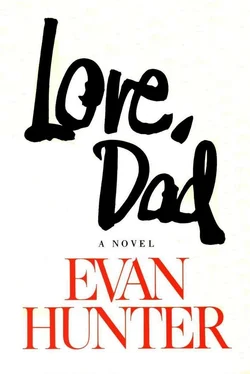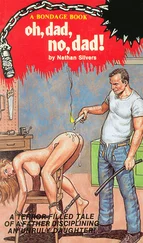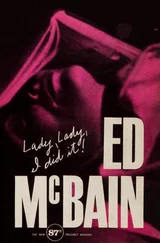“No one’s asking you to ignore your beliefs, Reverend. I’m asking only that you don’t pretend they were Scarlett’s.”
“Well... maybe that can be managed. But how can I give blessing in a house of worship to an act specifically...”
“You won’t be in a house of worship.”
“Pardon?”
“The family doesn’t want it in a church.”
“Then what... I’m afraid I don’t... why are you here if...?”
“I’ve already talked to Andy Wilkins, and he’s letting us use the Town Hall tomorrow, after the funeral. The parents are religious people, Reverend Harris. Your presence would be a comfort to them. I don’t think anyone would be truly served — not the Kreugers, not Scarlett, not anyone — if we pretend she didn’t kill herself. We’ll all be sitting there tomorrow with the knowledge of how she died, the terrible knowledge that she couldn’t find another way out. Don’t ignore it, Reverend Harris. Don’t condone it or bless it, but for God’s sake don’t add to her parents’ misery by condemning it as a violation of God’s law.”
The rectory fell silent. Outside in the church parking lot, Jamie could hear the minister’s two young daughters jumping rope in the bright October sunshine, chanting “Double-ee-Dutch, double-ee-Dutch.” A trapped fly buzzed against the leaded windowpane. Harris shook his head.
“I would have to say it was wrong,” he said.
“That would be condemning it.”
“Mr. Croft, please, can’t you see...?”
“Reverend Harris, Scarlett Kreuger was out there alone in those woods with the barrel of a shotgun in her mouth. Something was wrong, yes, but it wasn’t her putting that gun in her mouth and pulling the trigger. It was whatever caused her to go out there in the first place, whatever caused her to even consider such a thing. That’s what was wrong. That’s what was so horribly, shockingly wrong.”
Harris was silent for what seemed a very long time. Outside, one of his daughters laughed. The fly kept buzzing in the sunlight, trapped. Harris nodded. He sighed. “Yes,” he said, “of course.”
“Thank you,” Jamie said, and let out his breath.
“The waste,” Harris said, “the utter wastefulness of it,” and nodded again.
The custodian had rearranged the folding wooden chairs in the Town Hall so that they formed a semicircle around a long wooden table upon which were arranged three baskets of white lilies. The funeral was over at nine-thirty that Monday morning, and it was close to eleven when the hall began filling for the scheduled memorial service at eleven-thirty. The adults took seats on the wooden chairs; the young people wandered toward the back of the hall, and ranged themselves against the wall there. There were a great many young people. Jamie had expected there would be, but their presence unsettled him nonetheless and caused him to wonder whether what he planned to say would appeal to them. He had not written out a formal speech, had thought he would just say what was in his heart, basing an impromptu eulogy on what Melanie, dry-eyed, had said in the invaded sanctity of her home yesterday morning, and what he himself, outraged, had said in the fly-buzzing stillness of the rectory yesterday afternoon.
A tall, blond, bearded boy stood leaning against the wall at the rear of the room, his arms folded across his chest, his pale blue eyes watching Jamie as he sat behind the long table. He seemed to be taking Jamie’s measure, silently anticipating what would be said about Scarlett. The boy looked familiar. Was he Scarlett’s boyfriend? Someone Jamie had seen her with in town? But Larry Kreuger had said she didn’t have a boyfriend. Or had he simply said Scotty Klein wasn’t her boyfriend? Jamie couldn’t remember. Yesterday’s events seemed to have occurred in an airless, soundless vacuum that now defied true recall. The bearded, blue-eyed boy was still watching him. Their eyes met for an instant, held until Jamie turned his gaze away. More people were coming through the open oaken doors. Outside on Route 16, Jamie could see one of the town cops waving his arms at drivers wanting to park their cars. There would not be enough chairs for everyone. He wished suddenly that he had not agreed to speak today. He hadn’t known the girl, damn it!
But that was the point.
He waited while the hall filled. Connie, who with some of the other women had made coffee and sandwiches for after the service, came up front to sit beside red-eyed Larry Kreuger and his wife. The minister went to them, whispered some comforting words as he held Melanie’s hand briefly between both his own, and then came around the long table to take the chair beside Jamie’s. A hush fell over the room. The minister nodded to Jamie. Jamie got to his feet and looked out over the room. From the back of the hall, the boy with the beard and the pale blue eyes looked back at him.
“I didn’t know Scarlett too well,” he began. The truth, he thought. Start with the truth, and stay with it. “I wish I had. Her parents think I knew her well, shared with her a philosophy, or a view, or at least a common understanding of life that somehow transcended the difference in our ages. I wish that were true, too, but it simply isn’t. Scarlett was one of my daughter’s friends, but not a very close one at that, just a casual acquaintance really, someone who dropped by the house every now and then, another face in this town where there were, and are, so many teenage faces. I see some of them at the back of the room today, lining the wall, adults now, or almost adults, the way Scarlett was an adult or almost one. But not a person I knew, not really.
“I came late to this town. We didn’t move here, my family and I, until December of 1967. That was less than three years ago, a very short time in the history of a town that can recall Hessian soldiers in the streets. So I was denied the privilege so many of you others enjoyed. I didn’t know Scarlett in kindergarten, I didn’t know any of these kids when they were still very young, I didn’t see them performing in elementary school pageants, I didn’t watch them at Little League practice, I didn’t have to call parents in the middle of the night to say little Sally, who I see standing there at the back of the room, tall and beautiful, little Sally, or Annie, or Nancy, or indeed Scarlett if I’d known her then, had decided she didn’t really want to sleep over and was crying to be taken home. I missed all that, I came to these kids late. My own daughter was almost sixteen when we moved here. I caught all these kids who were her friends just as they were moving into their teens, just as they were on the verge of — forgive me, I must say this — leaving. Leaving us. Before they got here.”
He paused.
He looked out over the faces.
Connie sitting beside the Kreugers in the first row; behind them Reynolds and Betty McGruder whose boy had been killed in Vietnam; just behind them Frank and M. J. Lipscombe whose daughter had joined a commune out in Arizona only last week; and there was George Yancy, the postmaster, a widower whose only son Ralph had been in an automobile accident this past June, three months after he’d got home from Vietnam. And all the other townspeople, watching him, waiting for what he had to say next, the vast expanse of faces stretching toward the back wall where the young people stood, and there — the pale-eyed, bearded boy, his arms still folded across his chest, his eyes demanding to know why Scarlett Kreuger had killed herself in the woods early yesterday morning.
“We all know Scarlett shot herself,” Jamie said, and saw Junie Landers in the third row open her mouth in surprise, and looked directly into her face and said, “Yes, that’s the truth, we can’t deny it.” He looked to where the Kreugers were sitting, Larry’s hand between Melanie’s hands, and he said, “Nor do I think Larry and Melanie would want us to deny it. It’s a shocking horror they’re going to have to live with for a long, long time, and we can only help them live with it by recognizing it ourselves, and not pretending it didn’t happen. Because if we say to ourselves that this was just something with Scarlett , you know, a problem unique to Scarlett, something she couldn’t work out and had to deal with in the only way that seemed possible to her — by going out onto a deserted logging road in the middle of a lonely wood, alone with herself, alone with whatever final thoughts consumed her, and shooting herself, killing herself — well, if we can think this was Scarlett’s problem alone, and allow ourselves to believe that Scarlett was only an accidental casualty and not a victim of something that has been happening for a very long time now, why then we will have done her the final disservice, we will have committed the final obscenity.”
Читать дальше












